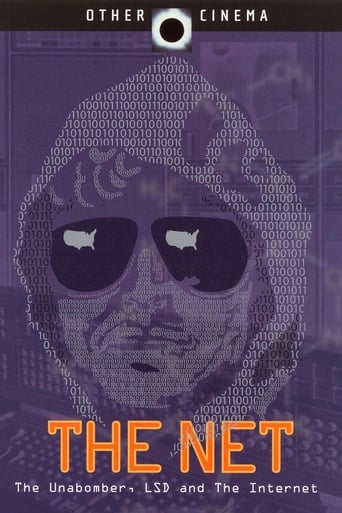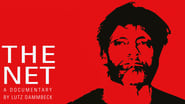Bill-276
Despite some lofty dialog and cherry-picked quotes by everyone from Norbert Wiener to Wittgenstein, this documentary is a train wreck of thesis, exploration and conclusion.Let me summarize the entire film for you here so you do not have to view it: In an attempt to understand the evolution of computing and it's future impact on humanity (a noble endeavor), the director takes such a disjointed path that the audience can only draw this conclusion: Rather than joining the "Digerati", computer scientists or other profound government-related technology projects like his contemporaries at Harvard and Berkeley during the 1960's, Ted Kaczynski "may have" developed his anti-technology views and perspectives after being subjected to psychologically stressful mind-control experiments while a student at Harvard.There you go.There is certainly a conversation around cybernetics that needs to be had by society, but as it's pointed out emphatically and eloquently multiple times by those who helped orchestrate "the system", killing people to have this debate takes away any legitimacy or credibility Kaczynski had. And the Unabomber is the primary source of counter-argument which the director depends. These repeated encounters destroy the director's agenda (whatever it actually was).You can fear technology as Kaczynski did or as the director is trying to make you, or you can view it the way Stephen Hawking does: Humans, limited by slow biological evolution, will not be able to compete with machine evolution, and would/(will) be superseded. Hawking believes machines are the natural evolution of humanity and likely our only way to get off the short life of our earth and solar systems, and navigate the universe.I don't know what I think, but I'd rather not live in fear if possible. And fear of technology, while completely excusable (Ed Snowden, et. al.) is not presented with any effect in this film.And I still don't know what LSD had to do with the film's premise!
Kiers (Kiers77)
There is no denying the facts uncovered by Mr. Dammbeck. If you are a student of the history of technology, of computing especially, and its relationship with society then this film is a must see.It raises questions which have never been addressed elsewhere. Indeed Mr. Dammbeck discloses that the biases are "systemic".For example, Why did "Silicon Valley" develop in California? Why is the University of California a beacon of BOTH computer science education, and the vanguard cultural movements in the 60s? How exactly were computers marketed to the public at first? In what context? How was the decision to disseminate the mass consumption of computation taken? (This is WAY beyond the "chicken and egg" problems of scope Guy Kawasaki faced with marketing Apple PCs to the public.) What are the Taboos underpinning our technological society? Who benefits from these taboos? What has Thom Friedman left out in his discussion of our presently Global, multi-ethnic society?This is a spare, lean philosophical exploration of things never or rarely discussed in the media, but it is extremely relevant to our present!A Must See, especially for engineering students.
dbborroughs
This is a German documentary about the rise of the internet, mind control and other military experiments and the unabomber, Ted Kaczynski. Told through interviews with various people who were involved with the various subjects the film is more an essay on the change in society and the encroachment of technology for better or worse into our lives. Linking it all together is the story of Kaczynski who's actions were some how connected to the people interviewed. As a look at the rise of the thing we call the internet the film is quite good and thought provoking weaving together a fabric of information that probably wasn't well known before.The problem with the film is that making Kaczynski a focal point the director often goes off the rails, indeed almost all of the people interviewed abruptly end the interview when the unabomber is mentioned. This would be okay since what we get up to that point is often choice material, however by the time the final credits roll we are not certain what the point of including Kaczynski was. Is he a hero or villain? Does he side with or against him? Is he really connected to all of the other subjects as the filmmakers seem to think he is? I don't think so. Certainly if he's siding towards anti technology there is the chance of being hypocritical since it clear how much of the film comes from computers, the net and other sources of technology.I'm a bit flummoxed by the film. Certainly the film is thought provoking and eye opening but in the end it falls apart. Allowing for its final crash this is a film that I look forward to seeing again. It simply has too much material to tickle the gray cells to ignore. Worth a look for those who want to be made to think.
mikyle
Where does technology lead us? Ted Kaczynski, the ex-Mathematician who lived a secluded life in the woods until he was arrested and convicted as the "Unabomber", believes that it will be our doom.Lutz Dammbeck confronts us with a puzzle, looking for connections between technological positivism, mind control experiments and the hippie movement, all traced back to state power interests developing as results of World War II. However, the links are weak, and instead of presenting us with a final conclusion resulting from his research (as other documentarists would eagerly do), Dammbeck simply leaves us to solve the puzzle by ourselves, strengthen or break the links as we find appropriate, raising interesting questions on science, technology and human's role in society along the way.Thus the movie's subject reaches far deeper than the "Unabomber's" biography, which is, in Kaczynski's own words, irrelevant. The movie provides a platform for Kaczynski's critique on technological positivism, which Dammbeck seems to at least partially sympathize with. However, the final decision is left to the viewer, who is aided by additional background and research material on the movie's website.Dammbeck is coming from an artistic point of view, consciously and deliberately breaking the limits between what is art and what is "real life", creating a disturbing, thought-provoking documentary. It is admirable and a sign of true plurality that publicly financed institutions such as SWR and arte stand behind an unconventional project that handles such a provocative subject seriously.




